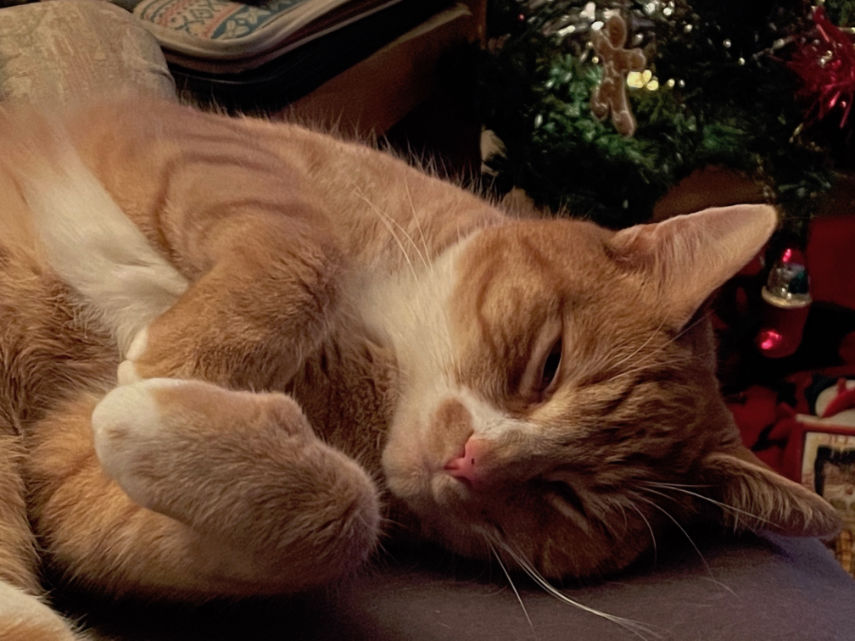Health & Lifestyle | Posted on December 15th, 2022 | return to news
Pet proof your Christmas
Firm Christmas favourites can be deadly for your pets, so find out how you can have fun this Christmas while keeping your pets safe.

Christmas can be a tempting time of year for your pets, but there are plenty of hazards too.
Keeping anything that could be hazardous to your pet’s health well out of reach is vital to ensure you get through the festive season without any mishaps. And they’re not as uncommon as you may think, as new research from the British Veterinary Association (BVA) shows that four out of five companion animal vets in the South West saw at least one case of toxic ingestion over the 2021 Christmas period.
Many of our Christmas treats can be deadly if eaten by animals. Chocolate, raisins and other dried fruit – such as that in mince pies or Christmas puddings – onion, garlic, xylitol in sugar-free products and seasonal decorations like mistletoe and holly can all be dangerous, and even fatal, to cats and dogs if eaten.
Last year, in the South West, 78 per cent of vets saw cases of chocolate poisoning and 73 per cent saw dogs taken unwell after easing raisins or sultanas.
Foreign body ingestion in dogs was also common. One in 10 vets saw cases related to food or food waste, seven per cent saw cases caused by gifts for pets while five per cent saw cases caused by Christmas decorations, clothing or accessorises and gifts for humans, including small parts of children’s toys.
Meanwhile, cats were most likely to have ingested non-food items such as seasonal plants like holly or mistletoe. Seven per cent of vets in the South West had cases caused by Christmas decorations.
Malcolm Morley, president of the British Veterinary Association, said: “Christmas can be the most wonderful time of the year but not if you end up with a poorly pet. Being vigilant and taking a few key precautions is all that is needed to keep your pets happy and healthy over the festive period.
“Keep all edible items, decorations and anything else a pet may mistake for a tasty treat out of their reach to help prevent avoidable emergency visits to the vet. We also advise keeping pets to their normal diets and avoiding feeding them any human food. If you are concerned your pet has eaten something they shouldn’t have, do contact your vet as soon as possible.”
Please share post:









